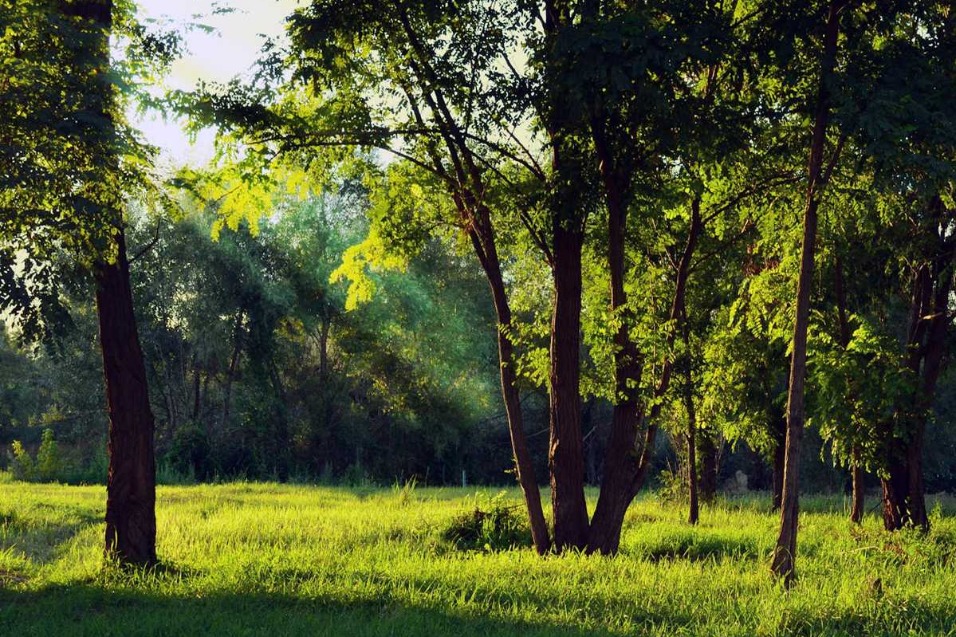研究:氣候變化導致阿拉斯加河流變?yōu)槌壬?/span> Alaskan rivers turning orange due to climate change, study finds
中國日報網(wǎng) 2024-05-24 10:23

幾年前,人們驚訝地發(fā)現(xiàn),美國阿拉斯加數(shù)十條河流里的水變成了“橙汁”。研究指出,事實上,這是被鐵銹污染的河流,而鐵銹則來自因全球變暖而融化的凍土。

Dozens of rivers and streams in Alaska are turning rusty orange, a likely consequence of thawing permafrost, a new study finds.
阿拉斯加的數(shù)十條河流和小溪正在變成銹橙色,一項新研究發(fā)現(xiàn),這可能是多年凍土解凍的后果。
The Arctic is the fastest-warming region in the globe, and as the frozen ground below the surface melts, minerals once locked away in that soil are now seeping into waterways.
北極是地球上變暖最快的地區(qū),隨著地表下凍土層的融化,曾經(jīng)被鎖在土壤中的礦物質(zhì)現(xiàn)在開始滲入水道。
"It’s an unforeseen impact of climate change that we’re seeing in some of the most pristine rivers in our country,” said Brett Poulin, study author and assistant professor of environmental toxicology at University of California Davis.
研究作者、加州大學戴維斯分校環(huán)境毒理學助理教授布雷特·普林說:“這是美國最原始的一些河流中看到的氣候變化的不可預見影響。”
The permafrost thaw is exposing minerals to oxygen in a process known as weathering, which increases the acidity of the water and dissolves metals like zinc, copper, cadmium and iron – the most apparent metal that gives the rivers a rusty color visible even from satellite images. The study highlights the potential degradation of drinking water and risk to fisheries in the Arctic.
凍土的融化使礦物質(zhì)暴露在氧氣中,這個過程被稱為風化,它增加了水的酸度并溶解了像鋅、銅、鎘和鐵這樣的金屬——顯然鐵是賦予了河流即使從衛(wèi)星圖像中也可見的銹色的主要金屬。這項研究指出了飲用水可能被污染的現(xiàn)狀和北極漁業(yè)面臨的風險。
"When mixed with another river, it can actually make the metals even more potent [in its] impact to aquatic health,” Poulin said.
普林說:“當這些河流與另一條河流匯合時,實際上會讓金屬對水生生物的健康產(chǎn)生更大的危害。”
The phenomenon was first observed in 2018, when researchers noticed the milky orange appearance of the rivers across northern Alaska’s Brooks Range, a stark contrast to the crystal clear waters seen the year prior.
這一現(xiàn)象最初是在2018年觀察到的,當時研究人員注意到流經(jīng)阿拉斯加北部布魯克斯山脈的河流的乳橙色外觀,與前一年看到的清澈水質(zhì)形成了鮮明對比。
Within the year, a tributary of the Akillik river in Kobuk Valley national park saw the complete loss of two local fish species: the dolly varden and the slimy sculpin.
同年,科伯克谷國家公園內(nèi)阿基利克河一條支流中的兩種當?shù)佤~類——花羔紅點斑鮭和粘杜父魚完全絕跡。
"Our data suggests that when the river turned orange, we saw a significant decrease in macroinvertebrates and biofilm on the bottom of the stream, which is essentially the base of the food web,” Poulin said of the rusting phenomenon. “It could be changing where fish are going to be able to live.”
普林在談到銹色現(xiàn)象時說:“我們的數(shù)據(jù)表明,當河流變?yōu)槌壬珪r,我們發(fā)現(xiàn)大型無脊椎動物和溪流底部的生物膜顯著減少,而生物膜本質(zhì)上是食物鏈的基礎。這可能會讓魚類能夠生存的地方發(fā)生變化。”
The rusting is a seasonal phenomenon, occurring in the summer typically during July and August, when the soil is thawed the deepest. The researchers at the National Park Service, US Geological Survey and University of California Davis now want to better understand the long-term implications of the changing water chemistry in places with continuous permafrost, which includes Arctic regions such as Alaska, Canada, Russia and parts of Scandinavia.
河流變成銹色是一種季節(jié)性現(xiàn)象,通常在夏季的七月和八月發(fā)生,這個時間段融化的凍土層最深。美國國家公園管理局、美國地質(zhì)調(diào)查局和加州大學戴維斯分校的研究人員現(xiàn)在希望能更好地理解多年凍土地區(qū)水中化學物質(zhì)變化的長期影響,包括美國阿拉斯加州、加拿大和俄羅斯境內(nèi)的北極地區(qū),以及斯堪的納維亞部分地區(qū)。
英文來源:衛(wèi)報
翻譯&編輯:丹妮
審校:董靜、韓鶴

















 英語點津微信
英語點津微信 雙語小程序
雙語小程序